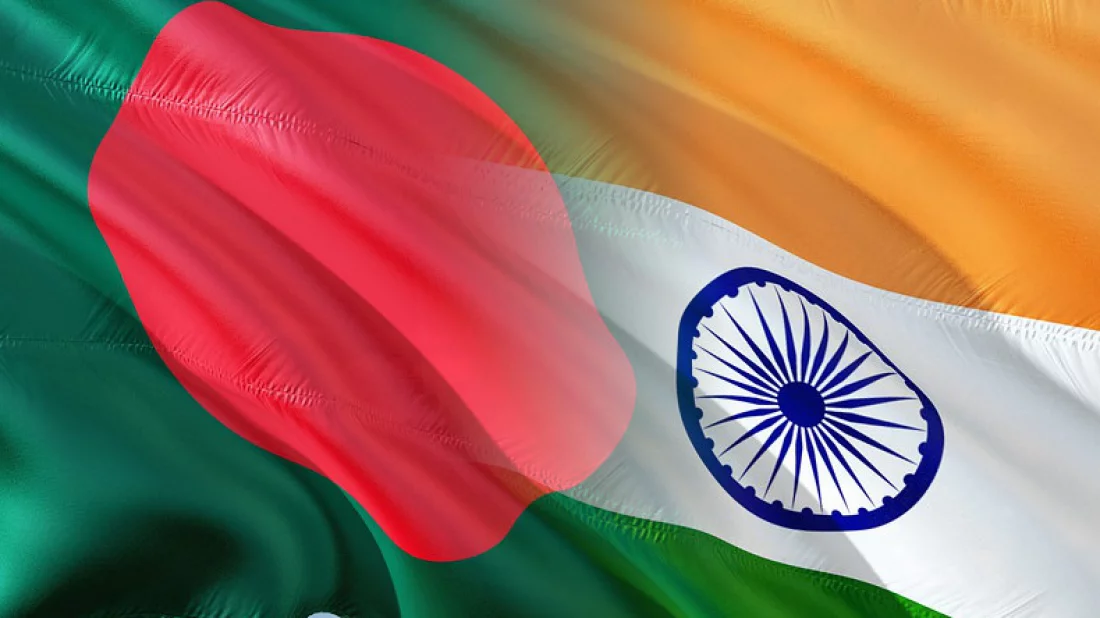The recent arrest of a controversial Hindu monk on sedition charge in Bangladesh has triggered violent outrage in India, with zealots, attacking our diplomatic missions in Kolkata and Agartala, damaging the mission properties, and desecrating our national flag.
It should be noted that earlier this year —months before his recent arrest — Chinmoy Krishna Das, the monk in question, was expelled from the International Society for Krishna Consciousness (Iskcon) for his non-cooperation with an Iskcon-commissioned probe against allegations of child abuse.
When serious charges of child abuse were brought against him, Iskcon asked him to temporarily step down from his position as the head of the Pundarik Dham, a Vaishnava religious centre in Chittagong District.
When he didn’t oblige, Iskcon expelled him.
Now unwarranted amplification of this controversial monk episode by Indian media – both mainstream and social media – and their sustained attempts to project Bangladesh as a country unsafe for religious minorities has resulted in unnecessary rage among a section of the Indian Hindu population.
Venting their anger violently is in no way helping the cause.
Rather, both Bangladesh and India are caught in a new détente, where religious extremists are undermining the otherwise friendly relationship.
On Monday, fanatics on the northeast border (Karimganj in Assam) even forced Indian traders to halt export-import trade through Sylhet.
Dhaka has sought for investigations into what has happened in and around the country’s missions in India, and Delhi was also quick to express regret, saying diplomatic and consular properties should never be targeted.
But we are witnessing with a deep sense of concern that religious extremist forces within India are rallying near different land borders and uttering hate speeches – not a conducive environment for maintaining friendly relations.
This is the kind of a scenario neither Delhi nor Dhaka would benefit from, rather, certain political factions – particularly the Hindutva revivalists within India — would try to advance their political cause at the cost of religious harmony, which is otherwise a core value of societies at large in Bangladesh and India.
Before we settle scores on who committed what wrongs or determine who is at fault, Dhaka and Delhi must do everything possible first to de-escalate tensions. Holding on to tensions would not serve either side.
As a first step India needs to realize – and the sooner they do it, the better for them – that a post-July Revolution Bangladesh is no less of a friend to India.
What is needed is for India to remove the “Sheikh Hasina lens” through which it viewed Bangladesh and that gave it a myopic vision for too long.
A little tweaking would clear India’s vision and help them find a good friend in Prof Yunus, Bangladesh’s transition government head – a visionary global leader in his own right, who has always batted for growing the entirety of South Asia.
If South Asia is to grow to its full potential, an animus between India and Bangladesh is something we can ill afford.
As part of a de-escalation move, right away what India can do is to ease up on the visa regime. Since the August 5 fleeing of Hasina to India, Indian visas to Bangladeshis have been in short supply. Opening up of visa processing like before would be seen as an Indian olive branch extended towards Bangladesh.
Now is an opportune moment for Bangladesh and India to de-escalate tensions. An Indo-Bangla Foreign Office Consultation (FOC) is just around the corner.
In a few days’ time, Bangladesh Foreign Secretary Md Jashim Uddin and his Indian counterpart Vikram Misri are scheduled to meet in Dhaka for the foreign office consultation.
They should use the forum to de-escalate the current tensions and take the relationship forward, irrespective of who is in power in Dhaka or Delhi at any given point of time.
Their predecessors Masud Bin Momen and Vinay Mohan Kwatra held their last FOC in New Delhi in November last year.
At that time the official release had stated that both sides held comprehensive discussions on a wide range of issues covering border and security, trade, commerce and connectivity, cooperation in water, power and energy sectors, people to people ties, and development cooperation in Bangladesh.
Both sides also exchanged views on sub-regional, regional, and multilateral issues.
This time around if India and Bangladesh wish to carry forward a relationship between two neighbours who share between them not only a shared history and heritage but also one of the world’s largest land borders – they have to mean business and demonstrate this by de-escalating the existing tensions at the very outset.
This FOC is an opportunity not to be wasted.
Neither Bangladesh nor India can afford to sink into the quagmire of religion-based political bigotry.
Dhaka Tribune


